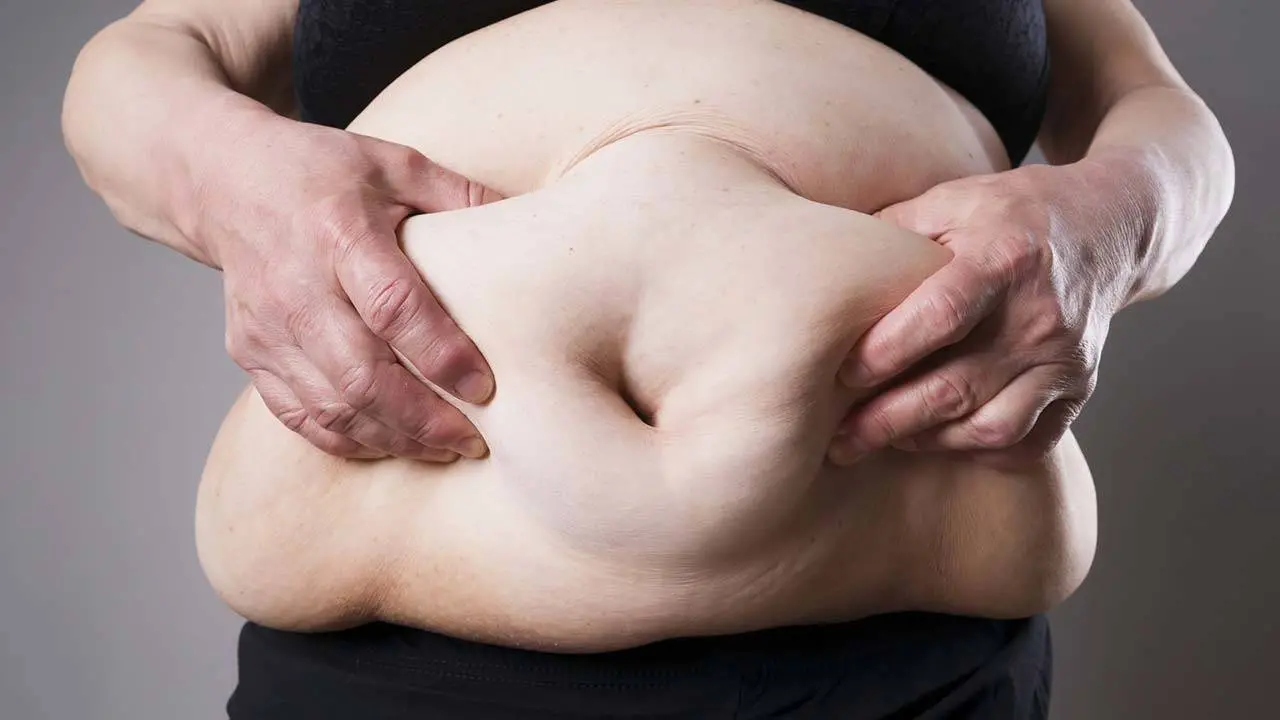Are eggs bad for you? If you go by headlines I suppose it depends on the decade. First, they’re good for you, then they’re awful for you, and now back to good for you.
This is not a cut and paste the article. There’s more than enough of that rampant on the internet. This article and its conclusions are based on peer-reviewed information.
Glynn’s Guide
Takeaways That Won’t Fail You
- Research has indicated (so far) that eating up to three eggs a day is not a risk for cardiovascular disease.
- Eggs raise our HDL cholesterol (the good cholesterol), which is very beneficial.
- Eggs are a terrific source of protein.
- Eggs are rich in difficult to obtain nutrients that are beneficial for our eyes and lower the risk for dementia.
- Dollar for dollar, eggs are a great bang for the buck and extremely versatile.
First, let’s go back in time for me…
In college, I learned that eating exogenousA chemical, hormone or any other substance that is made in a lab and introduced into the body. cholesterol had minimal change in endogenousA chemical, hormone or any other substance that is made within the body, e.g., endogenous insulin is made by our pancreas whereas exogenous insulin is injected with a syringe. cholesterol. Thus, I questioned my professors about the validity of people’s concerns on yolks. They agreed, under conditions.
We’ll get to the conditional part in a moment. Remember, this is before the internet became what it is today.
Sadly, the popular media heard the word cholesterol and associated it with “bad”.
These popular beliefs were wrong though.
Altering the amount of cholesterol consumed in the diet has a very minor influence on blood cholesterol. That goes for concentrations and ratios.
I dug deeper to better understand cholesterol. The topic of my studies was primarily focused on food’s effect on our body chemistry. So it was very appropriate.
Let’s look at eleven confirmed benefits of eggs before devouring the details.
Egg Yolks vs. Lean Ground Beef
Before moving forward, let’s look at the breakdown of egg yolks vs 85% lean ground beef as a comparison.
Nutritional breakdown of an average size yolk:
- Total Fat: 4.6g
- Saturated Fat: 1.7g
- Monounsaturated Fat: 2.1g
- Polyunsaturated Fat: 0.8g
- Cholesterol: 195 mg
Compare 1 oz 85% ground beef (note that we typically eat 4-6 oz ground beef at a time)
- Total Fat: 7.5g
- Breakdown varies based on cut, but the majority is saturated fat
- Cholesterol: 32mg
A Simplistic Breakdown of Cholesterol
Our liver generates different types of cholesterol in our bodies. This is what we measure to test blood chemistry.
Ingested (eaten) cholesterol absorption is regulated by the intestine.
It is transported to the liver via bilea fluid produced by the liver from cholesterol that is stored in the gallbladder and aids in the digestion of fats salts.
There it is broken down in the liver. Where it is finally voided from the body through the biliary system (bile production).
The liver and intestinal wall supply 90% of the plasma cholesterol. Working on a biofeedback mechanism down-regulating cholesterol synthesis and total body cholesterol increases.
Cholesterol is not an energy-producing nutrient. It is an important precursor to many important steroids in the body, such as:
- Vitamin D
- Progesterone
- Estrogen
- Testosterone
- Adrenocortical hormones
- Bile acids
- And more
The balance between saturated fats, unsaturated fats, and carbohydrates ingested (eaten) plays a very large role in our liver’s production of cholesterol ratios (HDLa high-density lipoprotein is typically referred to as “good cholesterol” and has the role of carrying cholesterol and phospholipids from the cells back to the liver to be recycled. Think of them as the trash truck heading to the dump (liver)./LDLa low-density lipoprotein that circulates the body to deliver their contents (phospholipids and cholesterol) to all the cells. Think of them as the UPS driver delivering packages (good and bad).).
This is important to note in consuming large amounts of refined carbs and saturated fats.
TL;DR Cholesterol Regulation
Our liver produces enough cholesterol to make the necessary hormones. If we eat a lot of cholesterol, we just make less cholesterol.
If you’re concerned about cholestrol
The most important factor is the combination of a high sugar/starch diet mixed with a high intake of saturated fat. This has the greatest impact on elevated (↑) LDL, decreased (↓) HDL levels, and elevated triglycerides. Not the level of cholesterol present in foods.
There are a select few individuals who actually respond to dietary cholesterol. This results in elevated endogenous levels, which is a genetic factor. Having your blood chemistry analyzed can help differentiate your genetic predispositions based. There’s some of the conditional part mentioned earlier.
Metabolic chemistry is far more complicated than most of us realize. Imagine a giant “if/then tree” that changes course with every different combination of food ingested and exercise executed. Resulting in massive differences in blood chemistry.
Under what circumstances are egg yolks bad for you?
If you’re consuming large quantities of sugar or starch (a large percentage of the population), the saturated fat in the yolk will contribute to an increase in LDL cholesterol. So, it’s totally a mixed bag.
Remember the if/then statement previously stated in the last bullet.
Also, remember the genetic factor. These may make some individuals more sensitive to ingested cholesterol.
But before we go on, remember that one yolk has a hair less than 2 grams of saturated fat. Not enough to label it as a major contributor to endogenous cholesterol levels.
Another factor is the decline in LDL receptor activity as one ages. Creating a delayed clearance of LDL from circulation. But weight gain and diet is still a more prominent factor in the elevation of LDL cholesterol.
What dietary adjustments have the largest impact on endogenous cholesterol levels?
Apple, et al showed that replacing a high saturated fat and carbohydrate diet with a diet high in protein (mixed plant and animal) and unsaturated fats reduce triglycerides, LDL cholesterol, and blood pressure while increasing HDL cholesterol 1,2.
So eat a very small amount of carbs. Replace those calories with protein and unsaturated fats.
What happens when you eat several whole eggs a day?
I’ve always just shaken my head in disbelief when hearing recommendations to limit egg yolks. Based on what research? Even when I was in grad school in the late ’90s, there was plenty of research contradicting that statement.
And today, there’s an abundance of quality research backing the safety of consuming eggs daily. And this isn’t necessarily all research funded by the egg industry. Across the board, daily consumption of eggs shows an increase in HDL and no change in LDL.
Let me restate the importance of increased HDL. You can think of HDL as a janitorial service that cleans things up. It negates any slight elevation in LDL levels. I won’t complicate this, but just know there’s real value in high HDL levels.
Also, there’s no backed data for the additional risk of cardiovascular disease.
Egg consumption has also been shown to increase lutein, zeaxanthin, and choline. These are important nutrients that are not abundant in the average diet. Lutein and zeaxanthin may help minimize the risk of macular degeneration.
Elevated levels of choline from egg consumption has also been shown to lower the risk of dementia.
I’d like to stand on my usual soapbox for a moment. Why do so many individuals preach the dangers of consuming foods like eggs while simultaneously consuming ample amounts of sugar and other highly processed foods? Those are the foods we should be pushing everyone to limit, not eggs.
TL;DR on Eating Eggs Every Day
There’s an exorbitant amount of research backing the consumption of eggs and an increase in good cholesterol with minimal change in bad cholesterol. Eggs also contain hard to acquire nutrients that we need that help our eyes and lower our risk for dementia.
How many eggs can you safely eat?
The number of legitimately depends on two factors:
What’s the rest of your diet like? Too much sugar and a lot of eggs become unsafe. But, let’s rephrase that…. It’s the sugar that causes the problem. So, keep the eggs and cut the sugar.
Do you have a genetic disposition for elevated cholesterol levels from consuming cholesterol? If so, any food containing cholesterol will be detrimental. But, if the rest of your diet is free of sugar, high in vegetables and lean protein, this is a non-issue.
So, how many eggs can you safely eat a day if you’re already eating very well?
I wouldn’t put a limit on it
I could not find quality research that looked at any more than 3 eggs a day. And it showed an increase in HDL cholesterol. That’s a plus if you ask me.
Eggs and heart disease
Xu states,
“Eating one egg daily is not associated with an increase in CVD or all-cause mortality.” In fact, one a day is associated with a lower risk for stroke.
Another study by Clayton states
“Consuming three eggs per day for 12 weeks did not increase cardiovascular disease risk in individuals with metabolic syndrome.”
I would NOT worry about eggs if you’re concerned about cardiovascular disease.
Can you eat too many eggs?
If you check your cholesterol regularly and find that consuming dietary cholesterol does not affect you, then I would not put a limit on the number of eggs you eat. I could not find data looking at more than three eggs per day. And three a day are safe.
On a side note, I’ve consumed approximately 30 whole eggs a week for the last twenty years. Every year that I have my blood tests done, they come back exemplary. You can see a copy of the last blood work I had done in my article How to Get into Ketosis Fast and Staying There [Safely].
The Conclusion on egg yolks
Enjoy the yolks if you’re keeping your sugars and starches low. But limit your egg intake to 1-3 a day if you eat a lot of starches. Let’s be honest, you should already be keeping your sugar ingestion low anyway.
Eggs, in general, contain so many great nutrients and are a great bang for the buck.
Enjoy!
Questions for you
Have you avoided egg yolks in the past because of what you heard?
Are egg yolks a part of your regular diet?
FAQs on Eggs
Which eggs are the healthiest?
Free-range organically raised or chickens fed an omega 3 rich diet have shown to be healthier than caged chicken eggs fed a standard diet.
Will eggs make me fat?
No one food is capable of making you fat. It’s far more complicated than that.
Are eggs bad for you?
No, not at all.
Can eggs cause bloating?
If you have an albuminthe predominant type of protein in egg whites sensitivity or allergy, yes, they can cause bloating. But if not, no.
References on egg yolks
Dominik D. Alexander, Paula E. Miller, Ashley J. Vargas, Douglas L. Weed & Sarah S. Cohen (2016) Meta-analysis of Egg Consumption and Risk of Coronary Heart Disease and Stroke, Journal of the American College of Nutrition, 35:8, 704-716.
Hassan Aljohia, Mindy Dopler-Nelsona, Manuel Cifuentesb & Thomas A. Wilsonac, The consumption of 12 Eggs per week for 1 year does not alter fasting serum markers of cardiovascular disease in older adults with early macular degeneration, Journal of Nutrition & Intermediary Metabolism, Volume 15, March 2019, Pages 35-41.
Appel LJ, Sacks FM, Carey VJ, Obarzanek E, Swain JF, Miller ER, Conlin PR, Erlinger TP, Rosner BA, Laranjo NM, Charleston J, McCarron P, Bishop LM, OmniHeart Collaborative Research Group FT. Effects of Protein, Monounsaturated Fat, and Carbohydrate Intake on Blood Pressure and Serum Lipids Results of the OmniHeart Randomized Trial. JAMA. 2005;294(19):2455–2464. doi:10.1001/jama.294.19.2455
Zachary S. Clayton M.S. Elizabeth Fusco M.S., R.D. Mark Kern Ph.D., R.D., C.S.S.D., Egg consumption and heart health: A review, Nutrition, Volume 37, May 2017, Pages 79-85.
Mahshid Dehghan, et al, Association of egg intake with blood lipids, cardiovascular disease, and mortality in 177,000 people in 50 countries, The American Journal of Clinical Nutrition, Volume 111, Issue 4, April 2020, Pages 795–803
Diana M.DiMarco, Maria Luz Fernandez, Differences in response to egg-derived dietary cholesterol result in distinct lipoprotein profiles while plasma concentrations of carotenoids and choline are not affected in a young healthy population, Journal of Agriculture and Food Research, Volume 1, December 2019, 100014
Diana M DiMarco, Gregory H Norris, Courtney L Millar, Christopher N Blesso, Maria Luz Fernandez, Intake of up to 3 Eggs per Day Is Associated with Changes in HDL Function and Increased Plasma Antioxidants in Healthy, Young Adults, The Journal of Nutrition, Volume 147, Issue 3, March 2017, Pages 323–329.
Bamini Gopinatha, Gerald Liewa, Diana Tanga, George Burlutskya, Victoria M. Flood, Paul Mitchella, Consumption of eggs and the 15-year incidence of age-related macular degeneration, Clinical Nutrition, Volume 39, Issue 2, February 2020, Pages 580-584
Eunice Mah, Oliver Chen, DeAnn Liska, Effect of Egg Consumption on Cardiometabolic Health Outcomes: An Overview of Systematic Reviews and Meta-Analyses (P08-043-19), Current Developments in Nutrition, Volume 3, Issue Supplement_1, June 2019, nzz044. P08–043–19
Kevin Maki, Orsolya Palacios, Mary Buggia, Mary Dicklin, Marjorie Bell, Cathleen Maki, The Effect of Replacing Carbohydrate-based Breakfast Foods with Eggs on Cardiometabolic Risk Factors in Adults at Risk for Type 2 Diabetes (P08-045-19), Current Developments in Nutrition, Volume 3, Issue Supplement_1, June 2019, P08–045–19.
McAuley, K.A., Hopkins, C.M., Smith, K.J. et al. Diabetologia (2005) 48: 8.
Melissa M Melough, Sang-Jin Chung, Maria Luz Fernandez and Ock K Chun, Association of eggs with dietary nutrient adequacy and cardiovascular risk factors in US adults, Public Health Nutrition, Volume 22, Issue 11, August 2019 , pp. 2033-2042
Onyenweaku, E., Ene-Obong, H., Oko, G., & Williams, I. (2019). Contribution of Eggs and Other Cholesterol-containing Foods to Total Dietary Cholesterol Intake, and Their Influence on Serum Lipid Profile of Adults in Calabar, Nigeria. European Journal of Nutrition & Food Safety, 9(4), 329-340
Xu, L., Lam, T.H., Jiang, C.Q. et al. Egg consumption and the risk of cardiovascular disease and all-cause mortality: Guangzhou Biobank Cohort Study and meta-analyses. Eur J Nutr 58, 785–796 (2019)
Maija P T Ylilauri, Sari Voutilainen, Eija Lönnroos, Heli E K Virtanen, Tomi-Pekka Tuomainen, Jukka T Salonen, Jyrki K Virtanen, Associations of dietary choline intake with risk of incident dementia and with cognitive performance: the Kuopio Ischaemic Heart Disease Risk Factor Study, The American Journal of Clinical Nutrition, Volume 110, Issue 6, December 2019, Pages 1416–1423


![Are Eggs Bad for You? Or Healthy? [The Definitive Guide] 1 Egg Yolks Healthy](https://www.gymfailedyou.com/wp-content/uploads/2019/05/egg-yolks-healthy.jpg.webp)


